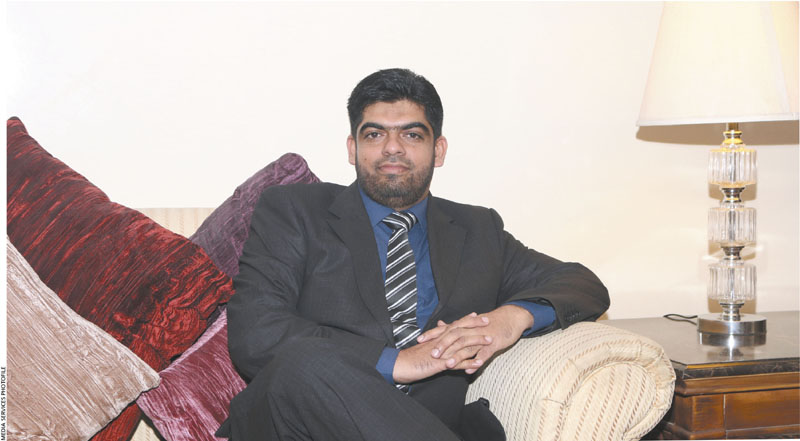SRI LANKANS OVERSEAS
EQUALITY ABOVE ALL ELSE
Mohammed Lafir places priority on equality and unity among the people

Q: How do your compatriots in Qatar view Sri Lanka?
A: In Qatar, there has been a general tendency for Sri Lankans to be viewed as domestic helpers, labourers and drivers. However, in the more recent past with the influx of skilled professionals to the country, perceptions about Sri Lankans seem to be changing quite rapidly. We are now perceived as committed, trustworthy and loyal employees.
There is also an increased willingness among the nationals of Qatar to visit Sri Lanka now due to the return of peace, and the island’s tropical climate, beautiful beaches and legendary hospitality.
 Q: What were your own impressions of Sri Lanka on your last visit?
Q: What were your own impressions of Sri Lanka on your last visit?
A: Colombo has witnessed much improvement in terms of the availability of luxury brands, shopping options and entertainment activities.
High-rise buildings and tourism-related infrastructure around the island too have seen significant development. But traffic in the city and suburbs seems to be consuming excessive time and resources.
In terms of quality, the public health and education services haven’t improved much and the country needs to concentrate on improving them.
Q: And how do you perceive Sri Lanka today in the context of the progress it is making in the post-war era?
A: The country has made slow but steady progress in the post-war era. There is visible infrastructure development through the construction of highways, new airports, ports and rural roads. But the question to be raised is whether some of these investments are really yielding substantial economic benefits.
Moreover, despite the great efforts to secure investments, the situation on the ground suggests that the country is suffering from a lack of foreign direct investments (FDIs) while the world economic climate hasn’t helped either.
The polarisation between communities continues to widen despite the cessation of hostilities. So it appears that the relevant authorities of this peace-loving island have failed to convey the message that unity, freedom and justice among all citizens is fundamental to building a strong nation.
Q: How do you view the issue of brain drain – and why is there still no reversal of it?
A: The lack of equal opportunity and low quality of life are the main reasons for the brain drain. So the migration of skilled people cannot be reversed until equal opportunity is presented to all citizens.
Q: What must be done to entice Sri Lankans living overseas to contribute or return to their country of birth?
A: Although we love our country of birth and wish to contribute towards its development, it is difficult to return to a nation in which the quality of life is poor.
To entice expatriates to return, the government must ensure that everyone has an equal opportunity – and it must maintain law and order, and reduce corruption, as well as improve the quality of service offered by all public institutions.
 Q: On what should Sri Lanka focus most in the coming decade especially in regard to the economy?
Q: On what should Sri Lanka focus most in the coming decade especially in regard to the economy?
A: The focus should remain on promoting ethnic harmony and the unity of the nation with a view to reducing the polarisation among communities. Without unity among its citizens, nothing can be achieved as a nation.
As for Sri Lanka’s economic prospects, the government must focus on moving towards a production-based economy and attempt to develop the country’s strengths. Historically, ours has been an agriculture-based economy and the shift towards the services sector has not brought any improvements.
The lack of investment in agricultural research has helped pull the sector backwards. Sri Lanka has also lost its competitive advantage in the services sector due to other countries in the region surpassing it through cost advantages. The government must also focus on increasing sources of revenue from direct taxes and formulate strategies to improve tax collection mechanisms.
Moreover, the education sector is in need of a major overhaul to produce well-educated individuals who suit the industrial sector and improve their employability.
There also needs to be more sources of FDI to add to local capital, which is barely sufficient to achieve substantial economic growth. The available natural resources, coupled with a literate and skilled population, and the appropriate use of foreign investments, would be the right formula for the country to prosper.
Q: And finally, what are your hopes for the country in the post-conflict era?
A: The post-conflict era presents an ideal opportunity for us to progress as a nation. All communities must engage with one another to eliminate the doubts created among them and focus on economic growth.
Peace, political stability, effective policies and qualified people to execute such policies would undoubtedly engender prosperity.






Leave a comment